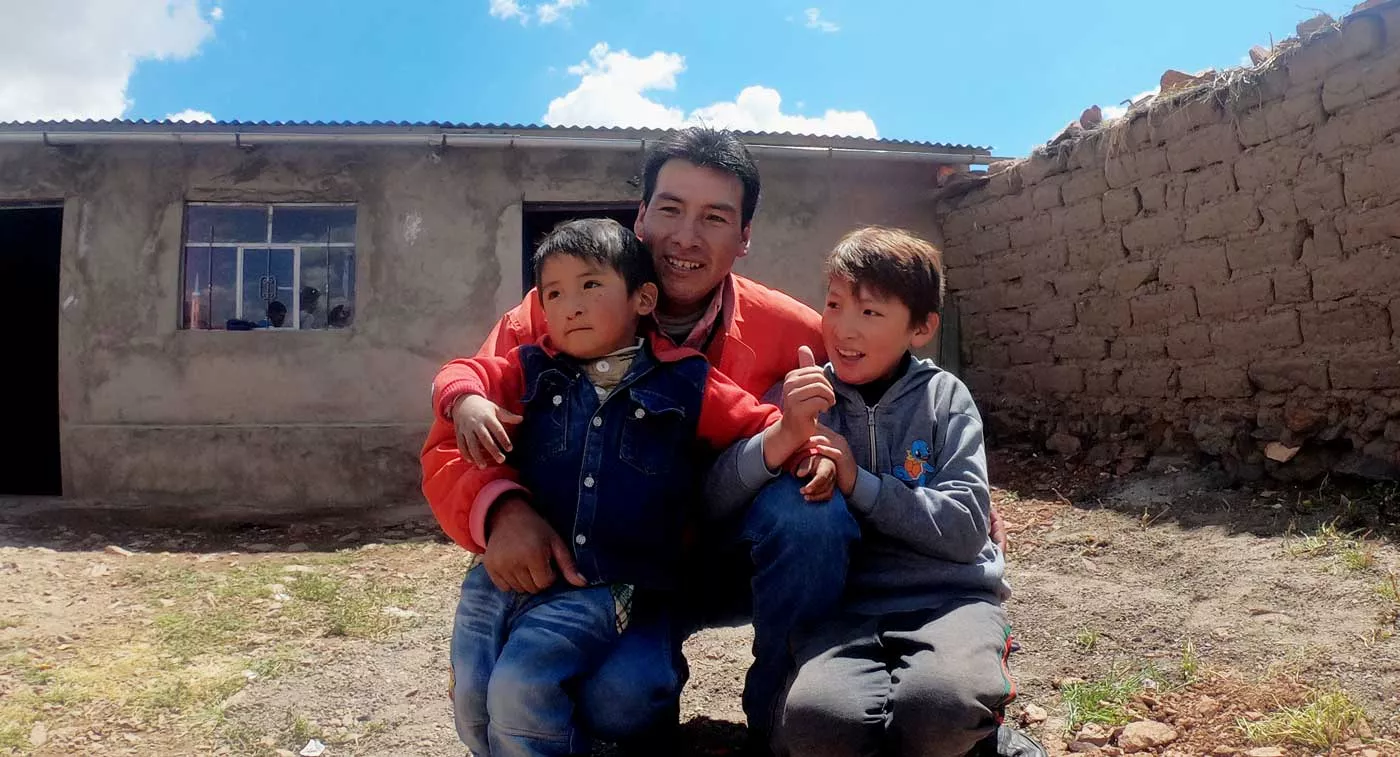A father in Peru gets support to care for his young children
In Peru, the macho culture is strong, and fathers who are left alone to care for their children are often stigmatized. Through the SOS fatherhood program, the participants get support to talk about feelings and how to take responsibility and become a more caring father.
Miguel* (10) and Carlos* (6) were small on the day their mother did not come home. The boys are from the countryside of Juliaca, Peru, and live with their father. When their mother left them, everyday life became tough for the small family.
It is not so easy to be a single parent in Peru. The macho culture in the country is so strong that when a man is abandoned by his wife he is looked down upon. Many people experience being isolated and devalued, and everyday life quickly becomes very lonely. That's how it was for dad Juan when he was left alone with his sons.
At school, the boys experienced being stigmatized and looked down upon by both teachers and classmates. They were teased and placed at the back of the classroom. Miguel is partially paralyzed and struggles with language. Carlos was bullied because of a congenital cleft lip and palate. The teachers lacked knowledge of how to handle and help children with disabilities, so the easiest thing was to ignore them both. In the end, the boys no longer wanted to go to school.

Juan went for a long time with the hope that his wife would return so that they could be a family again. They had taken out loans to give Carlos the surgeries he needed and to give Miguel the extra help he needed. Juan was left with all the responsibilities and the bills piled up.
Motivation from the fatherhood program
Juan experienced that his role as a single father was looked down upon in the local community, where traditional gender role patterns and a strong macho culture do not dictate that a man should do housework and be a loving father. In such a society, it is difficult for men to create a male identity that is independent of the macho role. They lack good role models for what it means to be a present and safe partner and father.
In order to change the negative spiral of violence and absence and give more children a better and safer environment, SOS Children's Villages in Peru runs the "Active fatherhood" program. The aim is to redefine masculinity and the father's role, and particular emphasis is placed on increasing knowledge about how harmful parental violence is for children, and that it largely affects children's self-esteem negatively and is something that is passed down. In 2019, more than 300 fathers completed this program, says Stephany Orihuela in SOS Children's Villages.
Around 90% of the fathers who participate say that they have been violent towards their partner and children. Through the program, we work to change mindsets and reaction patterns, we give them tools they can use in everyday life and interactions at home, and create a greater awareness of what it means to have a healthy family relationship.

We see that this helps them to change the way they interact both with their children and their partner. Active fatherhood makes a big difference, and we see that the fathers largely want and choose to change their behaviour, says Orihuela.
Juan is one of the fathers that receives support from SOS Children's Villages' fatherhood program. The program provides both financial support and guidance, including taking an active part in raising the children and taking on greater responsibility and tasks in the household. They learn how to talk about feelings and how to meet the children's different needs.
Juan is grateful for the help they receive and all three see a brighter future. SOS Children's Villages has provided a teacher who will help Miguel with his language and improve his motor skills. Work is also underway to build an extra room in the house so that they get a kitchen. Papa Juan likes to cook and thinks it is important that they eat dinner together as a family. He says that SOS Children's Villages motivates him to be a better father and to be as much as he can with the children.
* The children's names have been changed for privacy reasons.
